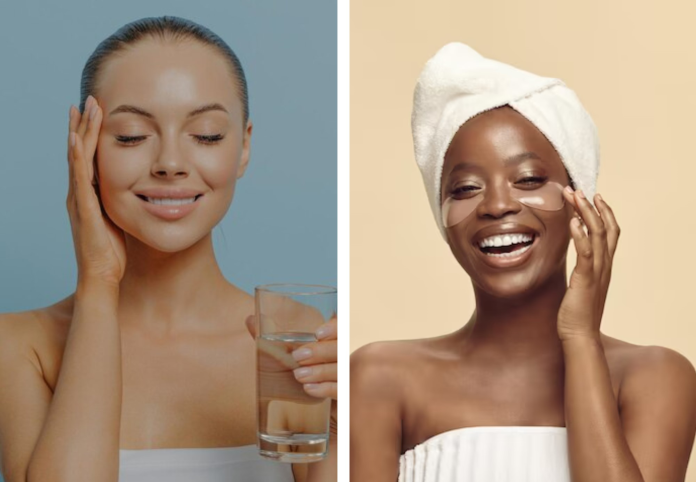Skin care is a crucial element of personal style, and the right approach can be the difference between a radiant, clear complexion and one that’s persistently problematic. Women seeking not just to make a fashion statement but also to maintain skin free from acne must understand two key concepts: hydration and moisture.
Hydration vs. moisture: Defining the skin’s needs
The skin, your body’s largest organ, requires a delicate balance of water and oil to function at its best. Hydration refers to the water content within your skin that affects its plumpness, elasticity, and overall health. Moisture, on the other hand, is about oil content—creating a protective layer to seal in that water, ensuring your skin stays hydrated.
Recognizing signs of dehydrated skin
Dehydrated skin is a condition that can plague anyone, regardless of skin type. It lacks water, which can lead to a complexion that appears lackluster, feels tight, and shows fine lines more prominently. A simple pinch test can help determine if your skin falls into this category—if the skin doesn’t bounce back quickly, it’s craving hydration.
Identifying dry skin and its challenges
Dry skin is not just a temporary state but a type that produces less oil. It often feels rough, appears flaky, and can be prone to irritation. This lack of oil disrupts the skin’s ability to maintain moisture, making a strong skincare routine non-negotiable.
Best ingredients for hydration and moisture
To address dehydration, look for products rich in humectants—ingredients like hyaluronic acid and glycerin that draw moisture into the skin from the environment. Moisturizing, however, requires occlusives and emollients. Occlusives, such as shea butter and certain oils, create a barrier to prevent water loss. Emollients, like squalene and lipids, smooth the skin by filling in the gaps between skin cells.
Tailoring your skin care routine
For those battling acne, a careful selection of products is vital. Heavier occlusives may exacerbate acne, so opt for non-comedogenic moisturizers that hydrate without clogging pores. Remember, overloading the skin with rich creams when it’s dehydrated can lead to more breakouts. It’s about finding a balance that maintains your skin’s health and complements your style.
Lifestyle tips for optimal skin hydration and moisture
Beyond topical treatments, lifestyle plays a pivotal role. Drinking plenty of water, avoiding hot showers that can strip the skin of natural oils, and using a humidifier can boost your skin’s hydration levels. Also, habits like smoking or excessive alcohol consumption can deplete your skin’s natural moisture, leading to more pronounced issues.
Conclusion
Mastering the art of skincare is as much a part of being fashionable as the latest trends. Whether your skin is thirsty for water or starving for oil, the right approach to hydration and moisture can lead to a flawless canvas for your style expressions. With a better understanding of these concepts, you’re now equipped to choose products that will support your skin’s health, allowing your natural beauty and personal style to shine through.


